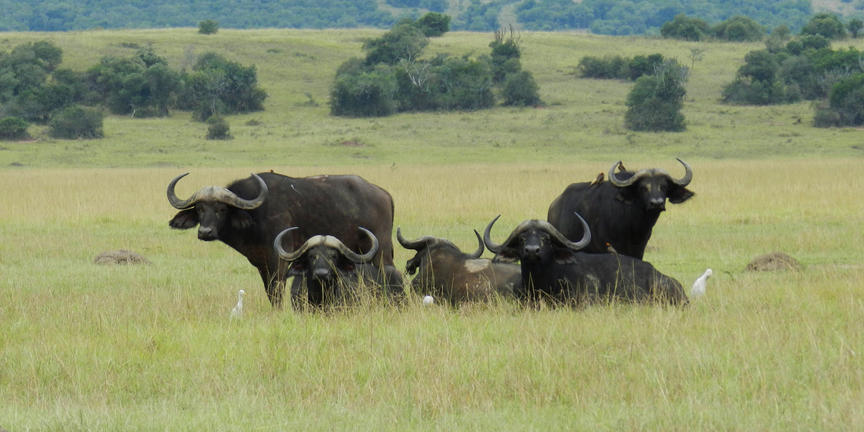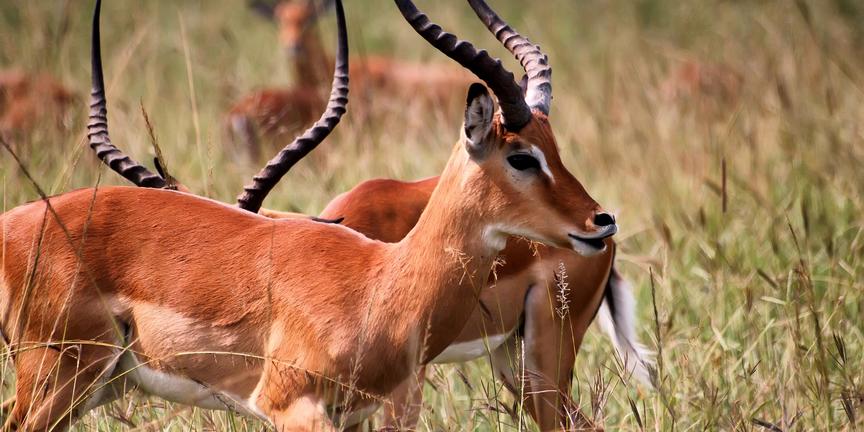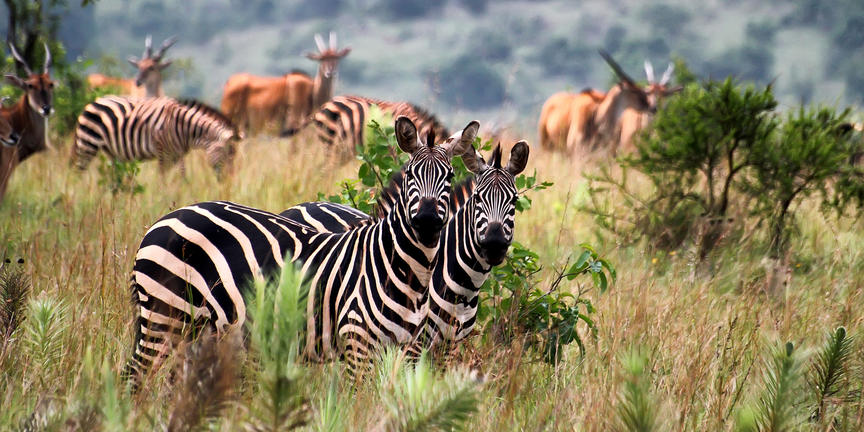The first thing that springs to most people’s minds when thinking of Rwanda is its turbulent political history. But today’s Rwanda is a far cry from the nation it was in the mid-90s: the country has emerged from the shadows and has much to offer visitors, most notably the tracking of endangered mountain gorillas in the lush Virunga National Park, which extends across the peaks and jungle-covered slopes of the volcanic Virunga Mountains. Other major tourist attractions include expansive Lake Kivu, ancient Nyungwe Forest with its rich population of primate species, and the game-rich savannah lands of Akagera National Park.
Quick facts
- Official Name: Republic of Rwanda
- Population: 12,159,586
- Area: 26,338 km2
- Capital City: Kigali (population: 745,261)
- Major Religion: Christianity
- Currency: Rwanda franc (RWF)
- Time Zone: GMT +2
- Country code: + 250
- Altitude: Ranges from 1000-4500m above sea level.
Geography
Known as the 'Land of a Thousand Hills', Rwanda rests just below the equator and its small size has a rich geography with mountains, volcanoes, savannas, and many lakes. Rwanda is a landlocked country in East-Central Africa, surrounded by the Democratic Republic of the Congo, Uganda, Tanzania, and Burundi.
Language
The national language is Kinyarwanda. French, English and Swahili are the other official languages. French is widely spoken throughout the country. In the capital and other tourist areas, many people speak English.
The People
Rwanda is one of the world’s most densely populated countries. Rwandans are drawn from just one cultural and linguistic group, the Banyarwanda, although within this group there are three subgroups: the Hutu (84%), Tutsi (15%) and Twa (1%). The Twa are a forest-dwelling pygmy people descended from Rwanda's earliest inhabitants.
Economy
Rwanda has a presidential system of government. The president is Paul Kagame of the Rwandan Patriotic Front (RPF), who took oath in 2000. Rwanda's economy suffered heavily during the 1994 Rwandan Genocide, but has since strengthened. The economy is based mostly on subsistence agriculture. Coffee and tea are the major cash crops for export. Tourism is a fast-growing sector and is now the country's leading foreign exchange earner.
Rwanda’s capital and biggest city stretches across lush undulating hills surrounded by towering mountains, the largest of which is Mount Kigali, rising 1850 metres above sea level. Kigali is the country’s financial, commercial and cultural hub, served by an international airport and featuring a wide range of accommodation options. It also offers a collection of restaurants and points of interest, including the Kigali Genocide Centre, an atmospheric market and numerous craft shops. With its interesting architecture, busy streets, meandering boulevards, and green hillsides, Kigali is said to be one of the most attractive cities in Africa and is definitely worth a visit.

Exceptional for it high level of biodiversity and numerous endemic species, Nyungwe National Park is composed of lush tracts of rain forest set high up on fertile mountain slopes. It is one of Africa’s most ancient forests and the home of Rwanda’s sole remaining chimpanzee population, as well as 85 additional mammal species, 43 reptile species and nearly 300 bird species.
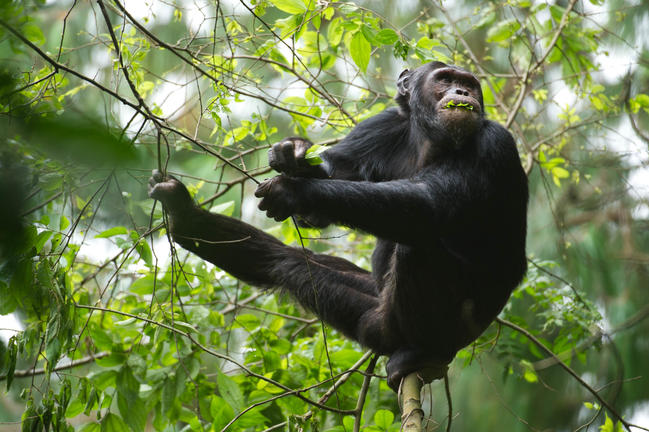
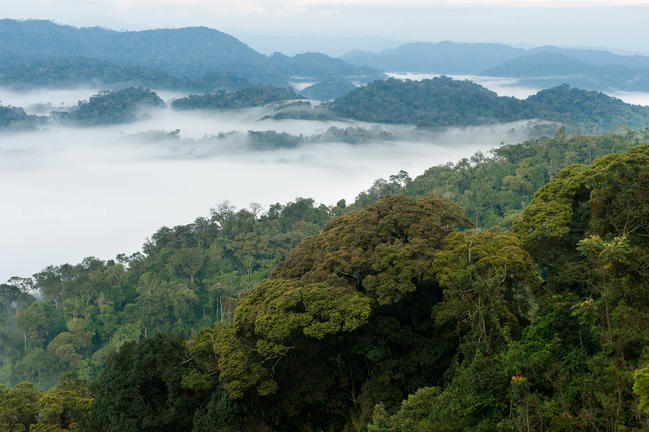
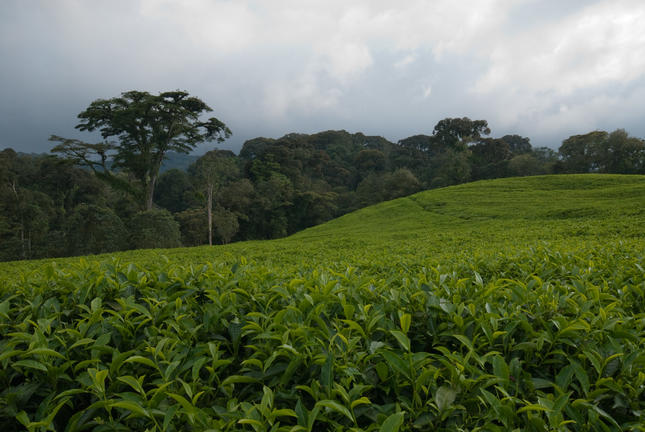

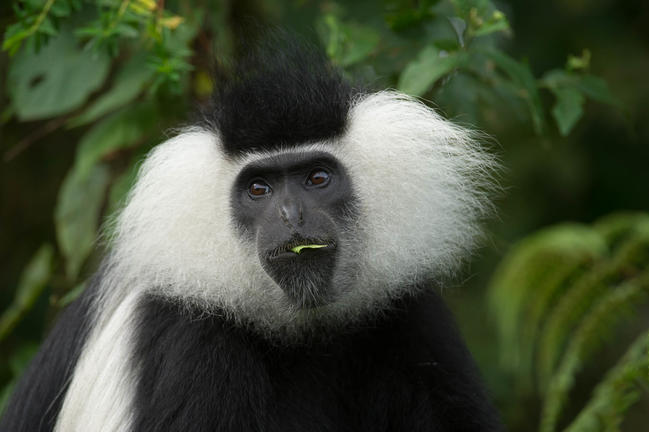
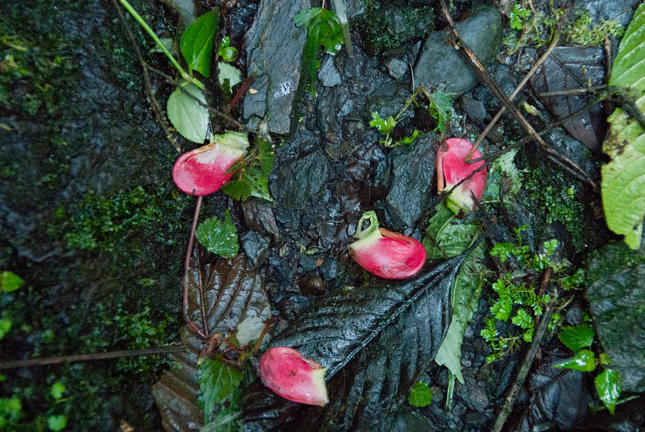
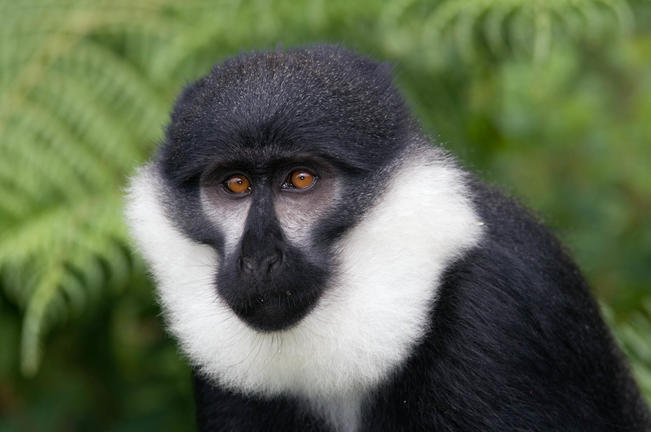
Sprawling across the shore of Lake Kivu in Western Rwanda’s Karongi District, the clean, slow-paced, and breathtakingly beautiful city of Kibuye boasts sparkling blue river views, lush forests, hills with pines and eucalyptus, and brightly coloured fauna. Kibuye is arguably one of the prettiest locations in the country, and there are two small, lovely beaches to swim from, as well as the chance to enjoy leisurely afternoon boat rides. Attractions include the serene St Pierre memorial church; the excellent Museum of the Environment, with a superb collection of native plants and explanations for their use in traditional medicine; and the magnificent Chutes de Ndaba Waterfall, plummeting down 100 metres. There are numerous accommodation options here and some fantastic restaurants looking over the lake.
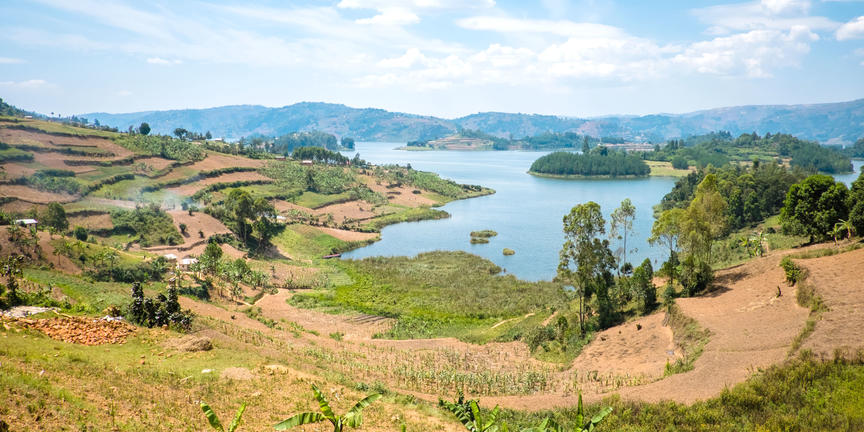
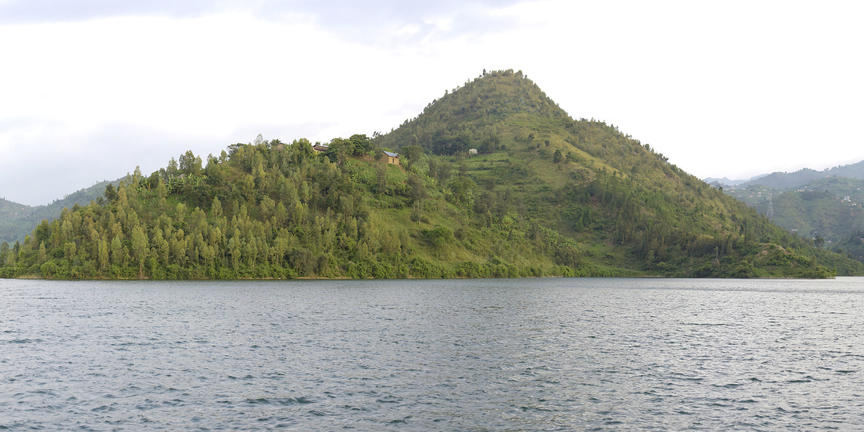
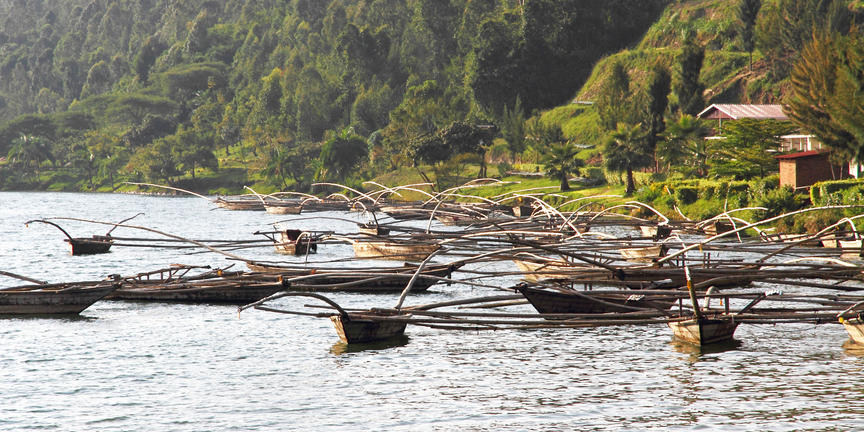
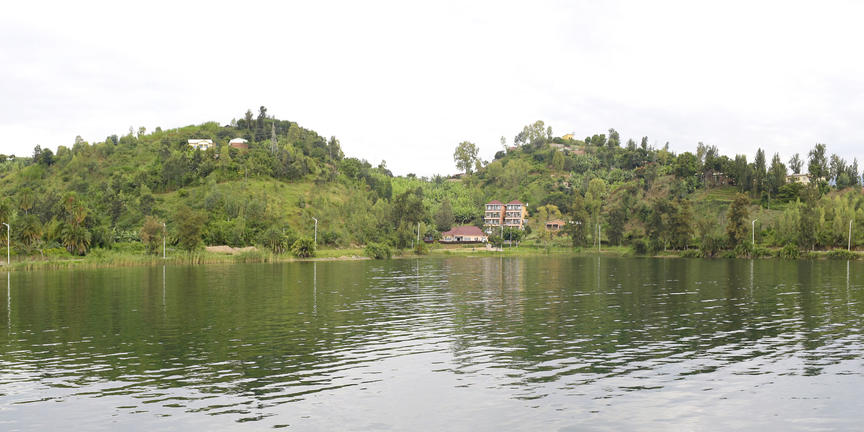


Bordering the Democratic Republic of Congo in Rwanda, and set high on the jungle-covered slopes of the volcanic Virunga Mountains, the Volcanoes National Park is best known as a sanctuary for the region’s rare mountain gorillas. Visitors flock here to experience face to face encounters with these intriguing creatures. Regulated treks through the reserve allow visitors to spend an hour at a time with these incredible primates in their natural habitat. While the gorillas are without a doubt the main drawcard, visitors can also look forward to exploring a network of scenic hiking trails, with the beautiful day hike to the crater lake on Mount Bisoke being a particular highlight. Make sure to visit the fascinating Karisoke Research Centre and the tomb of the world-famous Dian Fossey.
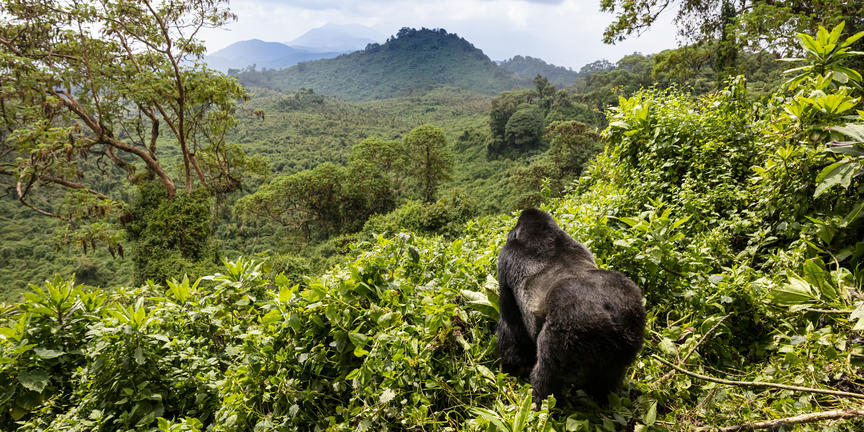
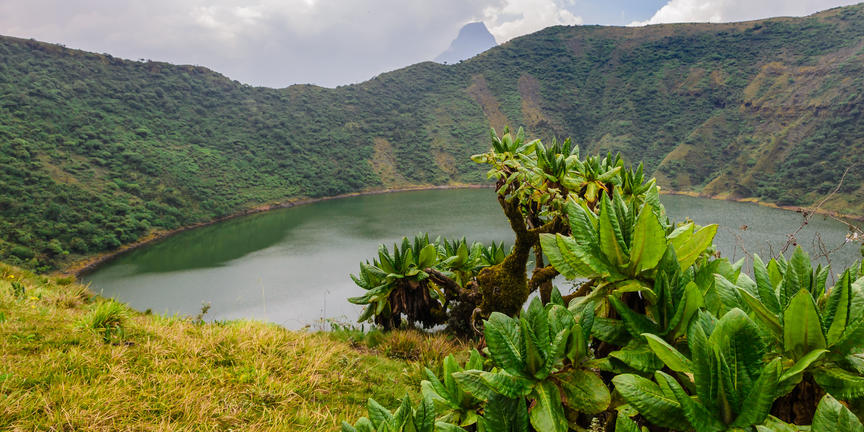
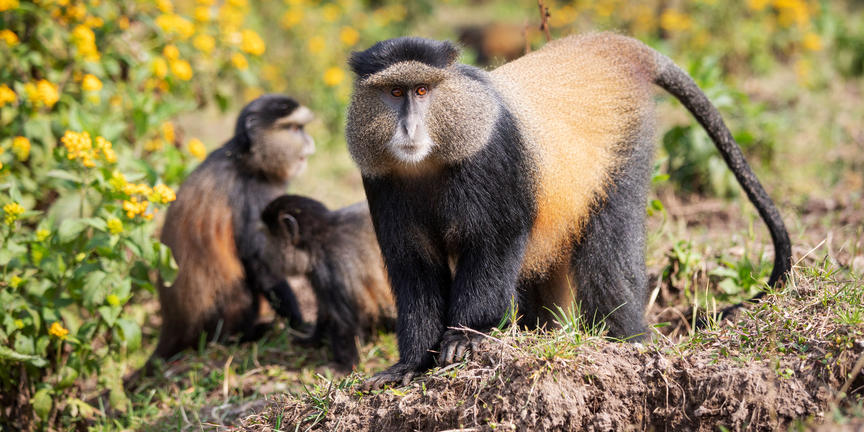
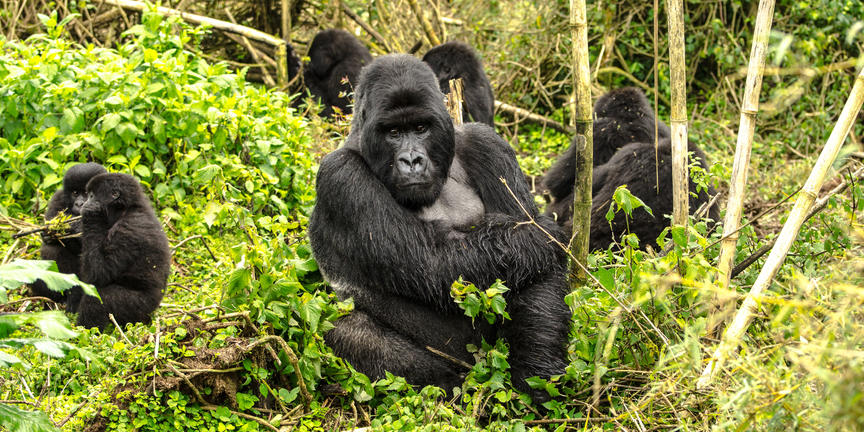
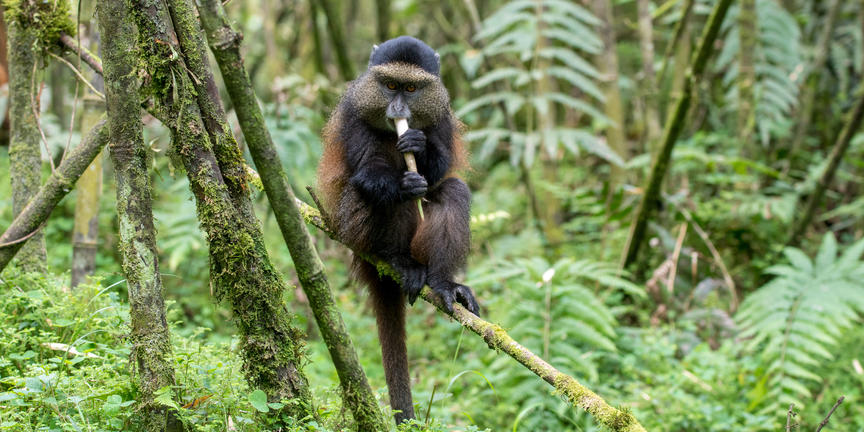
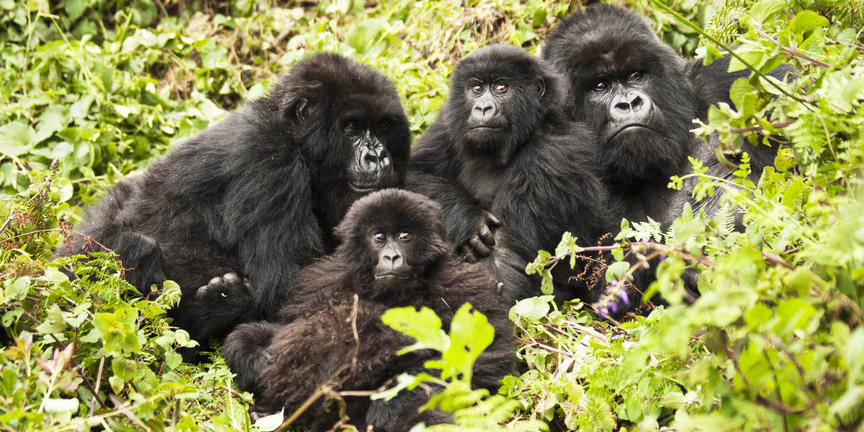
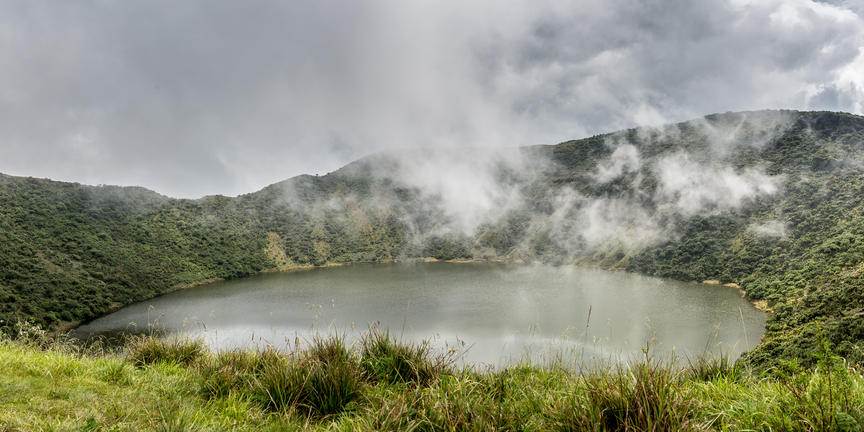
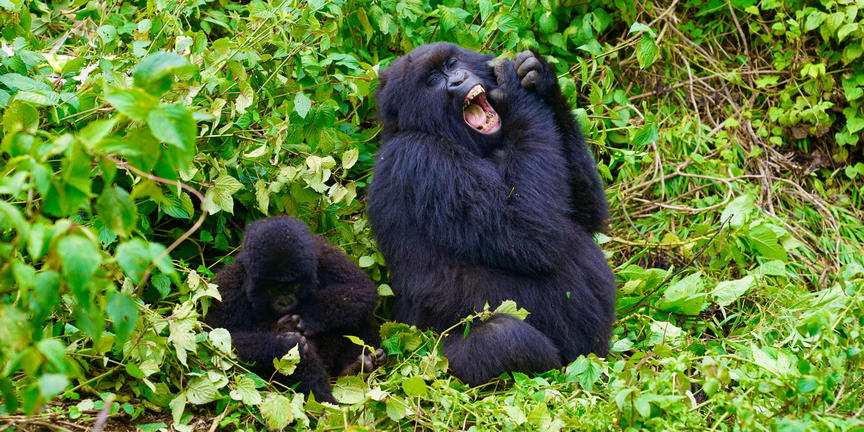
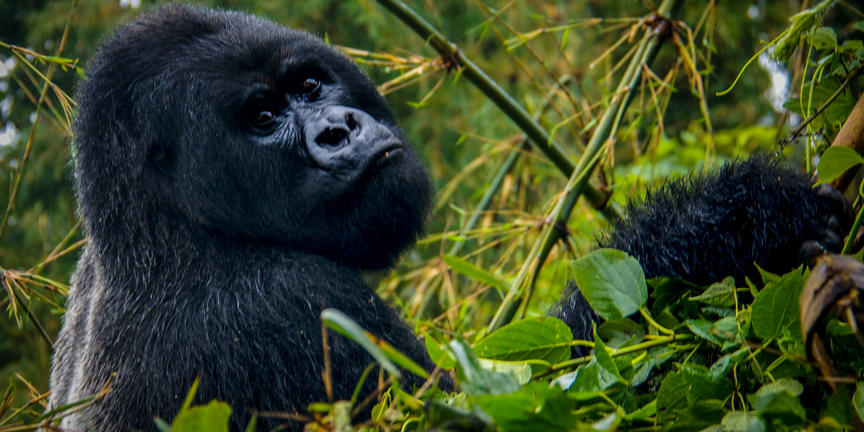
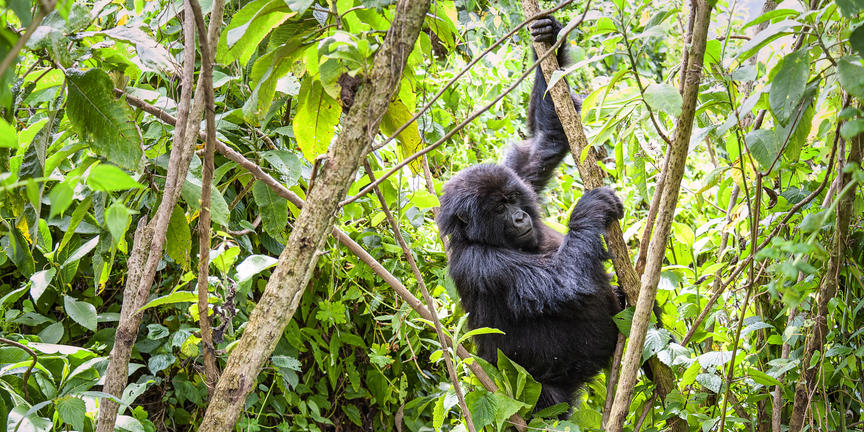
Akagera National Park is the largest in Rwanda (1,085km²), lying in the north east of the country. It contains three types of habitat, stretching across a vast expanse of low-lying mountains and savannah plains, but also the lakes and wetlands of the Kagera River, the largest protected Wetland in Central Africa. Crocodiles and hippos wallow in the park’s watery basins, predators prowl through its acacia groves, and elephant, zebra, giraffe, buffalo and other animals roam across its grassy plains, an ideal setting for game viewing.
Although previously forgotten, thanks to some aspiring vision by the Rwandan government, this park is gradually returning to its former glory, most notably with the reintroduction of Lions and Eastern Black Rhinos, to give it a Big 5 status. Visitors can expect to find large animals such as Buffalo, Elephant, Zebra, Giraffe and 12 species of antelope including the graceful impala, as well as a small but important population of leopards and spotted hyenas. Smaller predators to be found include mongooses, serval cats and side striped- jackals and primate lovers should look out for olive baboons & vervet monkeys.
